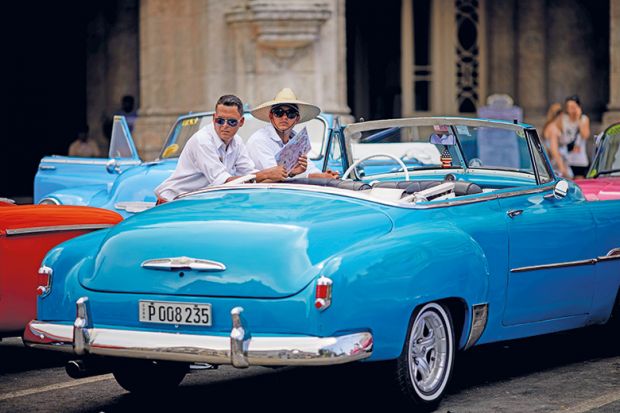The thaw in relations between the US and Cuba under President Barack Obama has led many universities in both countries to seek new academic partnerships, and this has continued despite the more hostile climate created by the Trump administration. One institution, however, has decided to buck the trend.
In July, the University of Miami announced the departure of Jaime Suchlicki, director of its Institute for Cuban and Cuban-American Studies. Cuban by birth, Dr Suchlicki has long been a committed opponent of “normalising” relations between the two countries.
Organisations representing the Cuban community in the US responded strongly to the news about changes at the ICCAS. The Cuban Resistance Assembly issued a statement praising Dr Suchlicki and stressing the need for an academic centre to “study the truth about Cuba, without compromise or ambivalence, and about a regime – the Castro regime – that has committed and continues to commit serious human rights violations…as well as crimes against humanity”. It also argued for “the inclusion of representatives from the Cuban exile community as part of the ‘search committee’ that will appoint the new director”.
In response to such pressure, University of Miami president Julio Frenk agreed to hold a private meeting with 17 leaders of the Cuban-American exile community. This was followed by an announcement on 18 August that the university would “develop a mechanism for the Cuban-American community to provide input” on the search for a new director and that it “[would] not establish any institutional agreements with the current Cuban government, including its universities”.
The Inspire American Foundation, whose mission is “to inspire democracy in Cuba”, announced that it was pleased to receive the concrete assurances it had been seeking that the “ICCAS would not be closed or become a centre of pro-Castro propaganda”. The Cuban Resistance Assembly had earlier called for the university to rescind the appointment of interim ICCAS director Andy Gomez, who it claims “has been publicly recognised for promoting ventures with commercial enterprises that do business with Cuba under its totalitarian regime”. It continued to argue that there was “a deep conflict of interest between participation in profit-making ventures in Cuba that require engagement with the Castro regime and an objective and unbiased study of the history and reality of Cuba and of the Cuban-American community”.
Times Higher Education asked the University of Miami about the implications for academic freedom of allowing lobbying organisations with strongly held views on Cuban history such an influence on the running of an academic centre. The university declined to comment further, beyond saying that “while the search for a permanent director is under way, no policy changes or agreements will take place”.




